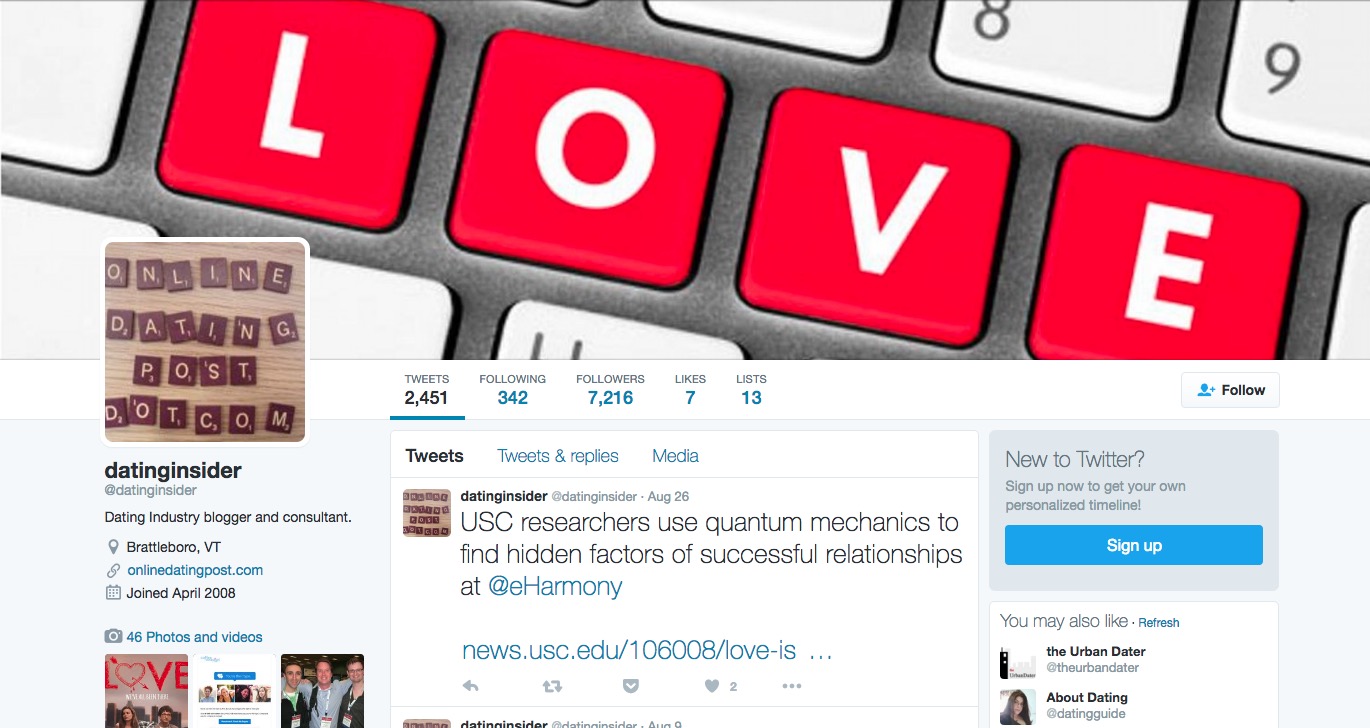In 2008, IntroAnalytics launched their recommendation system for dating sites. As I expected, because every matching system vendor does this, they broadened their focus into anti-scam and e-commerce. Why? In part because getting dating sites to license a third-party matching system is incredibly difficult and behavioral matching works across all sorts of industries.
The company changed their name to RecSys, broadened their scope, and now they have an anti-scam system that they hope the dating industry will embrace.
Fighting scammers is a high-stakes game, and obviously scammers negatively affect the dating industry. The amount of anti-scam code running on some dating sites rivals the code used to match and display profiles.
The problem with the dating industry isn’t that they need new anti-fraud technology, many companies already offer mature competing services. Dating sites need to deliver better matches.
Its going to be an uphill battle to get the dating industry to all use the same system to fight scammers, lets see what the Scamalytics team can make happen in the next 24 months. I can see a bunch of tier 3 dating sites and some tier 2 sites playing along. Shared database of scammers increasing value, maybe some decent ROI reports that make sense to a broader range of potential customers, leveraging the benefits and use of the system in advertising, etc.
And still dating sites will have millions of inauthentic profiles. You know who the biggest scammers are on a dating site? Each and every member with a profile. Dating sites still don’t understand, or choose to ignore the fact that (usually unintentionally) misleading profiles are 1,000 times more problematic to a dating site than scammers or bad matching systems in terms of negative impact. If the profile is bad, then it doesn’t matter how good the matching system is.
Technically you could say that RecSys does in fact address the two primary concerns of any dating site, authenticity (Scamalytics to a degree) and compatibility (IntroAnalytics).
Where is the VC-backed startup that helps people create authentic profiles? Thats probably a $50/million a year company right there (dating, LinkedIn, Facebook, value-added services, etc).
There was a company a few years ago that did “Pick the photo that best represents your favorite activities” type profile generators as an API, which I believe Match “adopted” and eHarmony tested, but that was not even getting close to the real issue of profile authenticity.
Nobody is going after this space, leading vendors in the industry are instead focused on reutilizing their core competencies in various ways: matching algorithms we’re not sure work and anti-scam technology that’s already on the market and other similar functionality.
What grows the dating industry faster and is better for singles, 50 million authentic profiles backed by an astoundingly-competent matching system or getting rid of a few percent of scammers?
RecSys has close ties to the dating industry, something that other outsiders lack. This closeness can only help them as they try to win over enough of the industry to be a viable anti-fraud solution used by more than a few sites.
I was somewhat surprised to see that Cupid PLC was using anti-scam technology, given that most of their revenue comes from adult and casual dating and that is where they likely stand to lose the most new signups. Perhaps the money spent removing a few percent of their database each month is worth the traffic hit. I see a little bump in share price due to the announcement, lets see how it affects revenues and traffic down the road.
From the press release (edited down):
Cupid PLC is now using Scamalytics technology from RecSys Ltd. Scamalytics anti-scammer technology is already operating on Cupid’s BeNaughty.com and GirlsDateForFree.com websites, with rollout planned on other Cupid plc sites such as Cupid.com, Flirt.com, BlackMatch.com within months.
The results to date have been impressive: Cupid’s anti-scammer measures are now catching scammers 35 percent faster and scammer detection is up 10 percent. And, to stay ahead of a fast-moving game, Cupid can now quickly adapt its anti-scammer measures to evolving scammer techniques.
20,000 scammers are being identified and permanently blocked from Cupid’s communities each month. In addition, any individual identified as a scammer is added to the Scamalytics master database, which is accessed by other online dating companies that use Scamalytics (at least the ones that agree to share the data, I’m sure some sites don’t like to share with competitors, just ask iovation.)
A 10% increase seems reasonable, if a bit low, but its early days. I’m sure that number will go up over time, especially if they truly can adapt to evolving scammer patterns.
Iovation, who is tracking over a billion devices, has been selling anti-fraud services to the dating industry for years. They have a dozen or so clients in the space and offer a similar “shared database” of identified fradulent devices and IP addresses.
Two vendors going after the same industry. A comparison is needed. Integration efforts, APi’s, how much data is being shared, pricing, use cases, ROI, dealing with false positives and many other factors need to be addressed in order to pick the solution thats right for your dating site. This is what I do.

